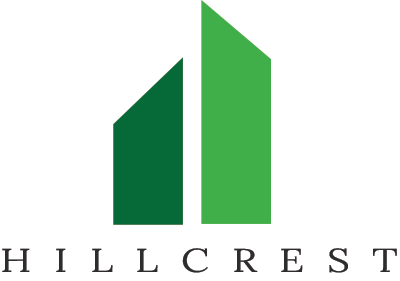Having a process for HOA dispute resolution is integral to the continued success and harmony of a community. Homeowners association boards should understand their internal procedures and be prepared to adopt alternative measures. In turn, homeowners should do their best to comply with these procedures.
What is HOA Dispute Resolution?
Dispute resolution is the process or practice of settling disagreements or conflicts between parties without the use of litigation. In HOA communities, disputes are quite common. Residents may disagree with each other or the association, resulting in arguments. With dispute resolution, the HOA can resolve these disagreements calmly and professionally.
The Importance of HOA Conflict Resolution
Conflict resolution is important because it helps the community foster stronger relationships. Resolving conflicts in a constructive manner can strengthen bonds between neighbors, enhance trust in the HOA board, and promote a more harmonious environment.
It also helps promote empathy. Neighbors are more likely to take the time to listen and understand different perspectives. Additionally, with proper HOA dispute resolution, the association can build trust and respect. This ultimately leads to a more positive and productive community.
Beyond that, conflict resolution allows the HOA to address problems head-on. This will help the board find solutions that work for everyone involved instead of allowing the issues to fester and escalate.
Types of HOA Disputes
There are three main types of disputes in an HOA: neighbor-to-neighbor disputes, homeowner vs HOA disputes, and internal board disputes.
1. Neighbor-to-Neighbor Disputes
 These are disputes between residents. Common examples include parking disputes, boundary issues, noise complaints, perimeter fencing, decorations, pet behavior, and property maintenance.
These are disputes between residents. Common examples include parking disputes, boundary issues, noise complaints, perimeter fencing, decorations, pet behavior, and property maintenance.
The HOA board doesn’t need to get involved in every neighbor-to-neighbor dispute. These disputes tend to happen frequently, and getting the HOA involved all the time can set a bad precedent. Instead, the board should determine whether HOA intervention is necessary.
Of course, if the dispute involves a rule violation, then it is likely that the HOA should interfere. If a neighbor has breached a rule, like failing to keep their lawn clean or keeping holiday decorations up beyond the permitted timeframe, then the HOA should follow proper enforcement procedures.
2. Homeowner vs HOA
These are perhaps the most common disputes. It is normal for homeowners to disagree with the HOA board’s decisions, especially when it comes to topics that directly affect them. More often than not, owners will let their complaints go with just a groan, but there are times when things can escalate.
Here are some typical examples of this type of dispute:
- Complaints over fee increases or special assessments
- Disagreements over new or changing rules
- Disputes over penalties for rule violations
- Issues with upcoming projects
3. Internal Board Disputes
 These are disputes that transpire within the HOA board, usually between board members. It isn’t surprising for board members to disagree over issues, especially on the subject of how to handle certain problems.
These are disputes that transpire within the HOA board, usually between board members. It isn’t surprising for board members to disagree over issues, especially on the subject of how to handle certain problems.
That said, the HOA board should always present a united front and refrain from actively displaying contempt over arguments. Once a decision or vote has been made, board members should support the initiative even if they don’t necessarily agree with it.
How do You Resolve Conflict With an HOA?
There are two ways to resolve disputes in an HOA: using internal dispute resolution or alternative dispute resolution methods. Let’s break them down below.
HOA Internal Dispute Resolution
In many cases, an HOA will have its own dispute resolution process internally. Board members will find this process and its requirements within the governing documents. Some states even require HOAs to have internal processes available for dispute resolution.
Although exact steps can differ, they usually involve the following:
- Either party makes a request in writing to enter the HOA dispute resolution.
- The parties will meet at a mutually agreed-upon date, time, and place.
- All parties shall make, in good faith, an effort to explain their sides.
- The board member in charge will attempt to reach a resolution that works for all parties.
- The agreed resolution shall be put in writing and enforced.
While internal dispute resolution prevents escalation to litigation, many HOAs still allow attorneys to be present at the meeting.
Alternative Dispute Resolution (ADR)
 There are two main forms of ADR: mediation and arbitration. In mediation, parties try to find common ground and reach a resolution with the help of a mediator. The mediator is a neutral third party who acts more as a bridge between the parties.
There are two main forms of ADR: mediation and arbitration. In mediation, parties try to find common ground and reach a resolution with the help of a mediator. The mediator is a neutral third party who acts more as a bridge between the parties.
In arbitration, parties present their sides and agree to a decision made by the arbitrator. With this, the arbitrator is a neutral third party who acts more as a judge and makes a binding decision for all parties.
Several states require HOAs to enter ADR first before resolving the issue in court. This helps associations save both time and money, as lawsuits can be very lengthy and expensive.
Who Pays Attorney Fees in an HOA Dispute?
Homeowners and HOAs may wish to hire an HOA dispute attorney to represent their case. In this scenario, the general rule is that each party covers their own legal or attorney’s fees.
Most of the time, the HOA already has an HOA dispute lawyer on retainer, with a budget set aside for legal fees. The association’s insurance, as well as the D&O policy, may also cover the related costs.
If the case goes to court, the judge might order the losing party to pay the attorney’s fees of the winning party. Some HOA governing documents also have clauses that shift the monetary responsibility to the owner if they lose the dispute.
When hiring a lawyer for HOA dispute resolution, the board should adopt a rigorous and extensive selection process.
HOA Dispute Resolution in Chicago
In Illinois, the Condominium & Common Interest Community Ombudsperson plays an important role in dispute resolution. According to Section 40, the Ombudsman may assist with dispute resolution according to the HOA’s governing documents. Homeowners in both condo associations and HOAs may benefit from this.
That said, the Ombudsperson can’t accept dispute resolution requests for ones that involve community managers. The Ombudsperson also cannot accept requests if there is already a pending complaint in court or the dispute has already been scheduled for ADR (or has gone through it in the past).
Homeowners may refer to the following contact:
Adrienne Levatino
CCIC Ombudsperson
100 West Randolph, 9th Floor
Chicago, IL 60601
(844) 856-5193
FPR.CCICO@illinois.gov
Key Tips for HOA Dispute Resolution
When resolving disputes internally, board members should keep the following tips in mind:
- Remain Fact-Based. Don’t rely on hearsay or comments. The HOA board should focus on the facts and make a decision based on those.
- Be Neutral and Unbiased. It is important to keep an open and neutral mind at all times. There shall be no room for favoritism, personal vendettas, and biases in dispute resolution.
- Communicate Clearly. Finally, board members should communicate in a clear and open manner.
The Final Word
It is clear that HOA dispute resolution plays an essential role in maintaining harmony and a sense of community. Board members should understand their own internal processes and the alternative measures that are available to them. Homeowners, on the other hand, shouldn’t be afraid to enter dispute resolution.
Hillcrest offers HOA management services to communities in Chicago. Call us today at 630-627-3303 or contact us online to request a proposal!
RELATED ARTICLES:
- Addressing HOA Complaints And Common HOA Violations
- How To Address HOA Noise Complaints In Chicago
- Can The Police Enforce HOA Rules?


